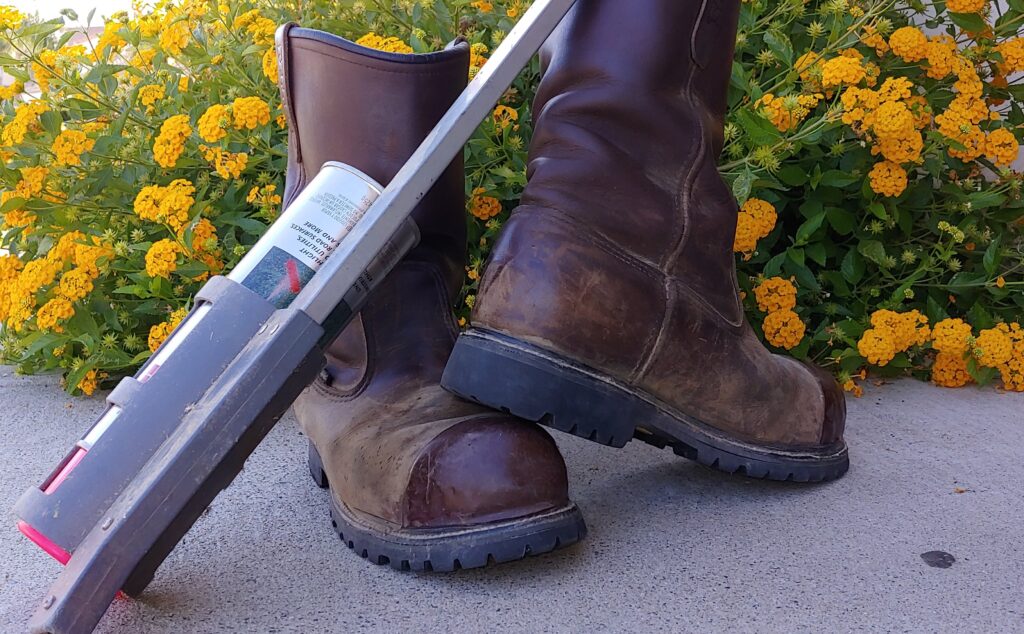What’s the difference between a public and private utility locator? And do you really need both? If you’re curious about either of these questions, stick around because we get asked them both… a lot.
Public and private utility locating are as different as fraternal twins (meaning, they’re similar, but not identical)! A lot of people don’t understand private utility locating. It’s something of a black sheep in the utility locating industry – misunderstood and cast aside.
The surprising part is that there are more private underground utilities than there are public: 65% of utilities are privately owned, the Common Grounds Alliance found. Damaging private utilities can be just as pricey and harmful as damaging public utilities.
If we’re being honest, though, a lot of contractors don’t truly understand the importance of either.
Don’t worry, we’re not here to judge your knowledge of the APWA Uniform Color Code, the difference between wet and dry utilities, or what gravity lines are. Rather, we just want to clear things up about utility locating and look at the differences between a public and private utility locate.
What is Public Utility Locating, Anyway?
To keep things simple, private utilities are owned by private property owners, and public utilities are owned by water companies, electric companies, telecommunication providers, etc. Utilities that are on private property are, by definition, private utilities.
If you’re going to disturb the ground in any way, whether you’re building a new skyrise or planting a tree, you need to “call before you dig.” It’s relatively common knowledge that you’re expected to call up 811 a few days before you dig. When you do so, you’re calling the public utility locator.
The public locator will come out to any commercial or residential property for free and mark any public utilities, which usually means they mark up to the service meter.
An 811 call prevents you from accidentally hitting public utilities, like:
- Domestic Water
- Sewer
- Natural Gas
- Electric
- Internet
- Phone
- And More
Calling up a public utility locator is just common sense. No one wants to be the jerk contractor who didn’t call 811, and caused a blackout on the entire street. And of course, no company wants to be paying out a life insurance policy because of a gas line strike.
Calling 811 should be a regular part of the excavation process. It avoids inconveniences, injuries, fines, extra costs, wasted time, and in extreme instances, death. But, every six minutes, an underground utility line is damaged because someone didn’t call 811. Pretty crazy.
(Side note here: not all people who do this are totally irresponsible. They might have made the mistake of trusting their city map’s indication of where utility lines were. The thing is, it’s often difficult to find a good utility map, and if you happen to find one, it’s usually somewhere on the scale of “a bit off” to “dead wrong.”)
So, is calling 811 enough? Is private utility locating really necessary? And when should you call a private utility locator? We’ve got the answers for you below.
When Should I Bring In a Private Utility Locator?
Your best bet is to call in a private utility locator anytime you do an excavation on private property. Why? Because several types of private utilities aren’t part of an 811 search.
811 mainly exists to prevent significant downtime and safety hazards to citizens in the public right-of-way. But if a buried line on private property is hit, it’s not really the public utility’s problem. In other words, if 811 could talk, it would tell you, “Um, that’s more of a you problem.”
Here are some examples of private utility lines:
- Backup Generator Electrical Lines
- Outbuilding Electrical Lines
- Parking Lot and Other Site Lighting
- Septic Tank Pipes
- Sewer Laterals
- Propane Lines
- Firepit and Barbeque Gas Lines
- Parking Lot Storm Drains
- Irrigation Systems
- Telecommunication Lines between Campus Buildings
- And More
Plus, more extensive facilities like hospitals, schools, apartment complexes, military installations, and government facilities often have their own utilities beyond the public sector. So in these situations, a private utility locator’s services are essential.
Don’t Risk It: Call in A Private Utility Locator in Southern California
Underground utilities are out of sight and out of mind most of the time – until they aren’t. You have two options for becoming aware of them.
- Option One: You locate them during a private utility locating session
- Option Two: You locate them when you accidentally hit one in the middle of a project
That’s it. Those are your options. With the first option, you have time to prep and avoid pricey and possibly dangerous issues. With the second option, there is, at best, tons of wasted time and money. At worst, the result is electrocution, explosions, or death. In case they weren’t already, those should all be on your personal and professional “To-Don’t List.”
Get a private utility locator from the beginning, and avoid being one of those people who say, “I don’t have the time for that,” only to waste both time and money when you experience a line strike.
You have the time, especially if you go with Enhanced Scanning.
At Enhanced Scanning, we prioritize quick response times because we know getting the job done quickly impacts your bottom line. Beyond that, we have the latest technology and the sharpest skills. After completing thousands of successful utility locates, we are confident in claiming the title, “Professionals at Finding the Unfindable.”
Are you looking for a private utility locator in Southern California? Give us a call at (951) 783-2483 or email us at contact@enhancedscanning.com, and let us know what we can find for you today.
